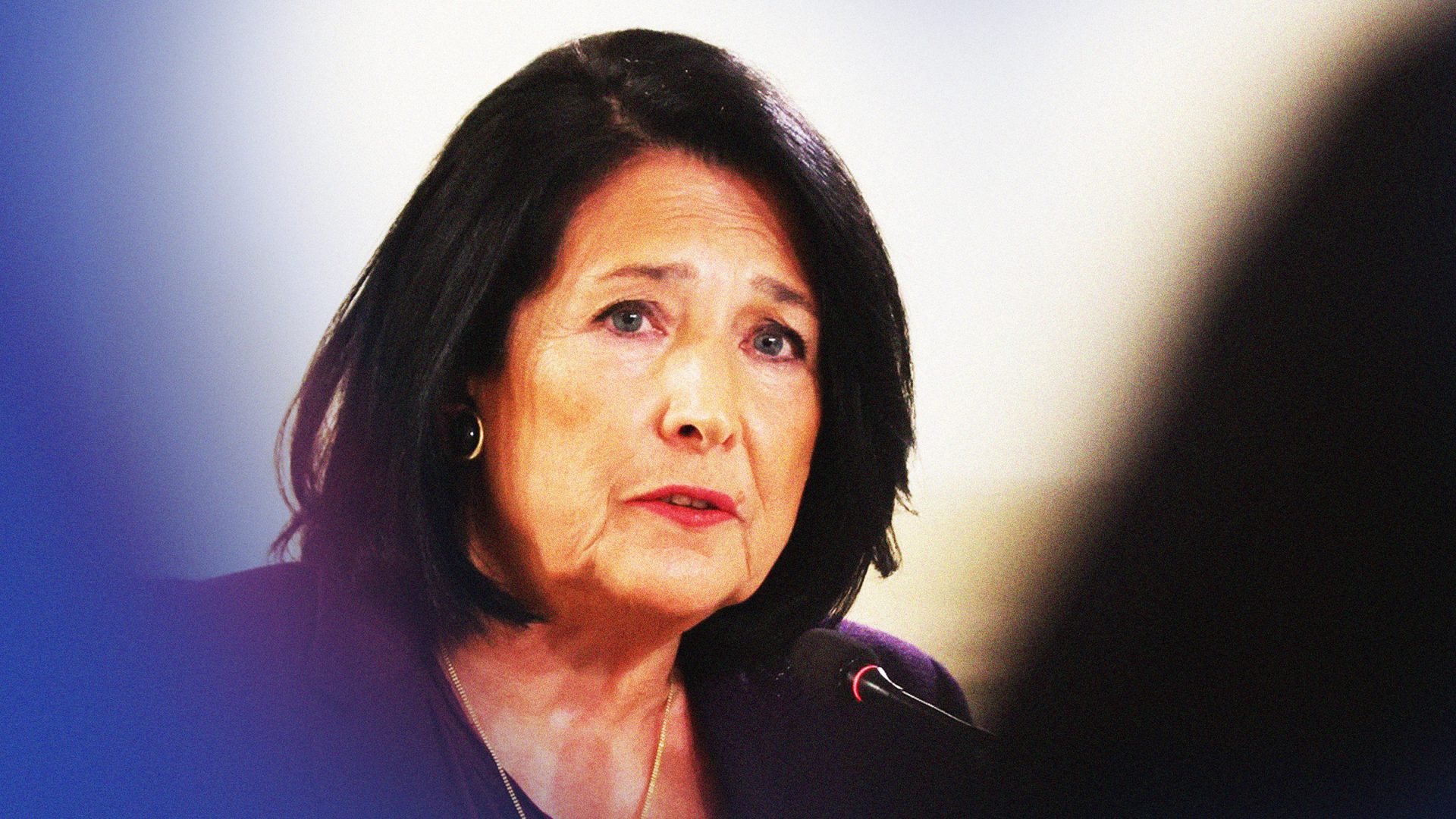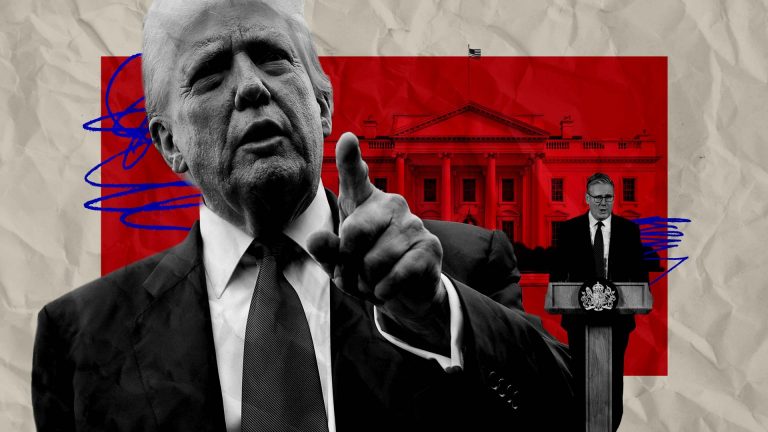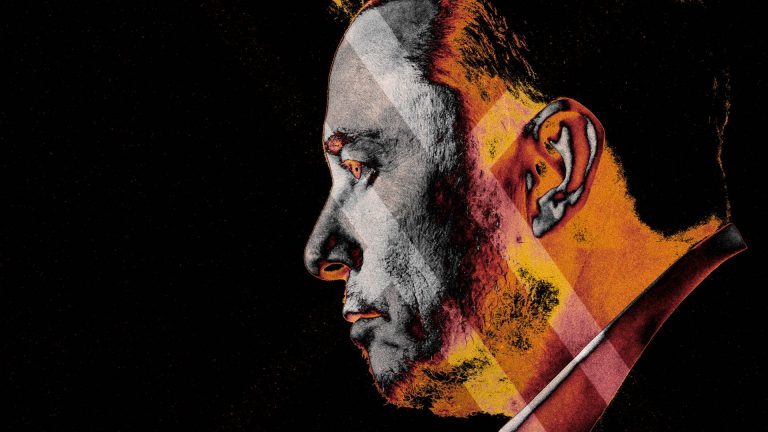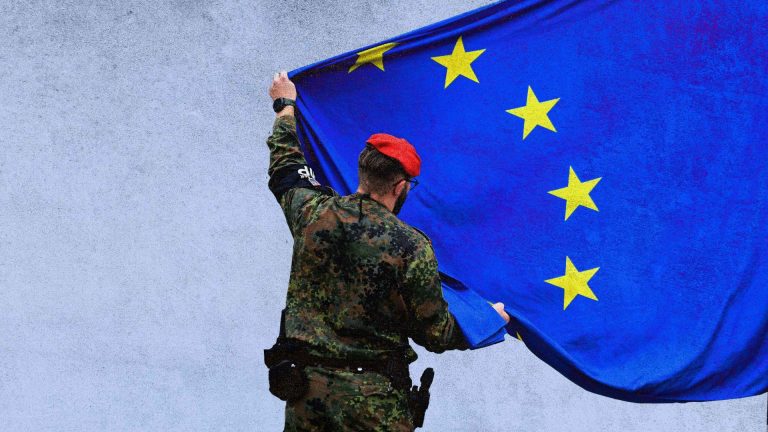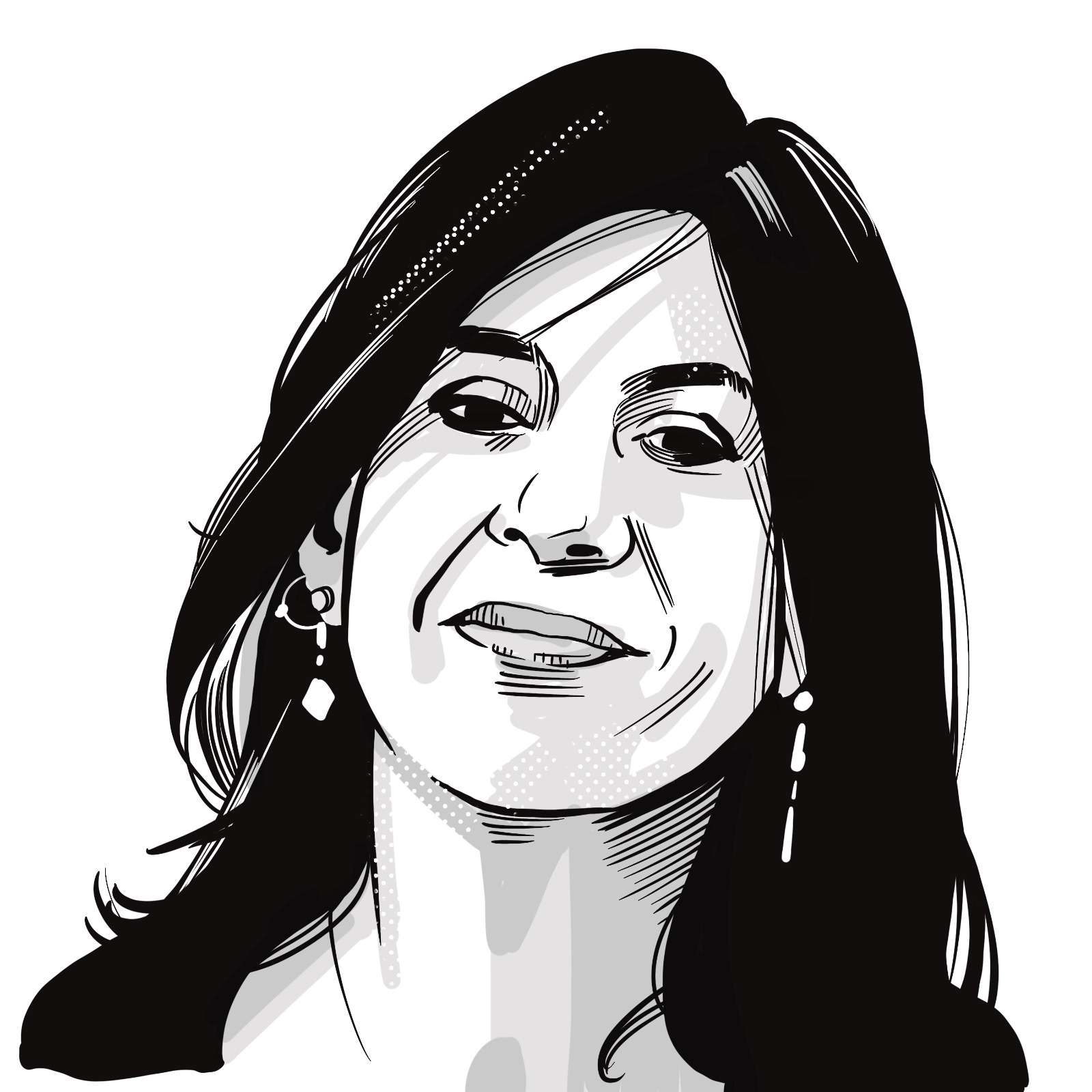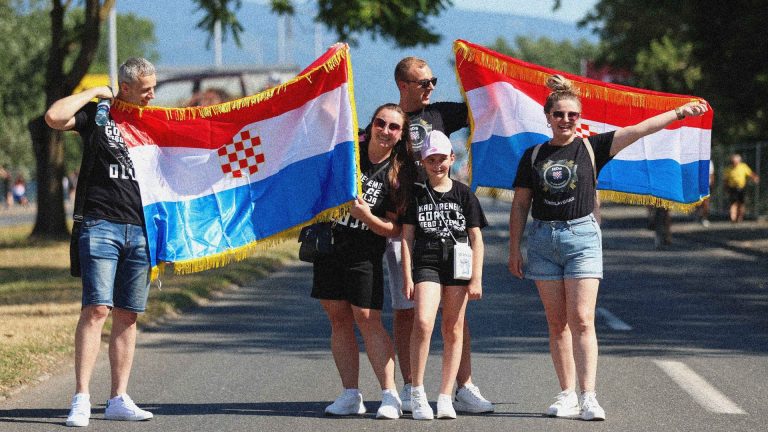As Georgia’s government has tilted toward Russia, prompting waves of protests in Tbilisi and across the country, Georgia’s fifth president, Salome Zourabichvili, has become an unlikely leader of the pro-European opposition.
A former French diplomat whose presidency was once endorsed by the hard right, nationalist Georgian Dream party, she found herself facing down riot police in November, when the party that once backed her announced it would be suspending Georgia’s bid for EU integration. In 2023, the Georgian Dream leadership also tried to prevent Salome Zourabichvili from making presidential visits to Germany, Poland, Ukraine and France. She went anyway, and the governing party attempted to impeach her.
Zourabichvili was replaced by a former Manchester City footballer named Mikheil Kavelashvili, who was voted in by Georgia’s parliament after an election marred by allegations of fraud and a full opposition boycott. When Zourabichvili left Georgia’s presidential palace, she said she was taking the “legitimacy” of the office with her. She continues to claim she is Georgia’s legitimate president, a view that is shared by many of her supporters.
Zourabichvili has acted as a unifying figure for the fractured Georgian opposition and continues to represent Georgia’s European hopes on the world stage, as well as its efforts to stay clear of Russian influence. She spoke exclusively to The New World.
The New World: Do you still see street protest as the most effective strategy for countering the ruling Georgian Dream party?
Salome Zourabichvili: Street protest is not a strategy, it’s a fact. And it’s not something that is organised by any political force in particular, or by the opposition parties that are united here. It is really the reaction of society when it was told that the ruling party is taking this country away from its European path, towards a Russian model of governance, and towards Russia.
So I think that nobody can stop this movement. It will have ups and downs because it’s physically impossible to [protest] all the time. And the ruling party is trying everything they can to stop this movement, including strangling it through financial pressure, after having used violence, arrests and everything.
TNW: How advanced is the current state of political repression in Georgia?
Zourabichvili: The space for free speech, free demonstration in general, for exerting your free rights, is getting smaller and smaller every day. The difference between Russia and Belarus and Georgia is the existence of a civil society that is very strong that is fighting, even without having any support.
The people are still here, even the young people. They are not leaving the country, which is probably one of the hopes of the ruling party. And that’s our big difference. We also still have some critical media, but they’re also under very strong pressure. But the main thing is this fierce will of fighting back, which I think is the resilience of the Georgian population over centuries.
TNW: What role have Russia and Putin played in helping Georgian Dream consolidate power and in turning Georgia away from Europe?
Zourabichvili: They’ve been playing with Georgia all the time. They have, apparently, very close links with people in the ruling party. And very clearly, they have been putting additional pressure to turn Georgia away from its European path.
Suggested Reading
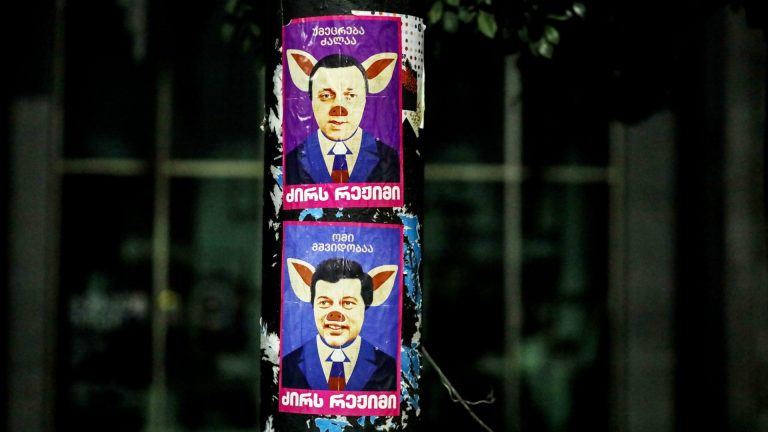
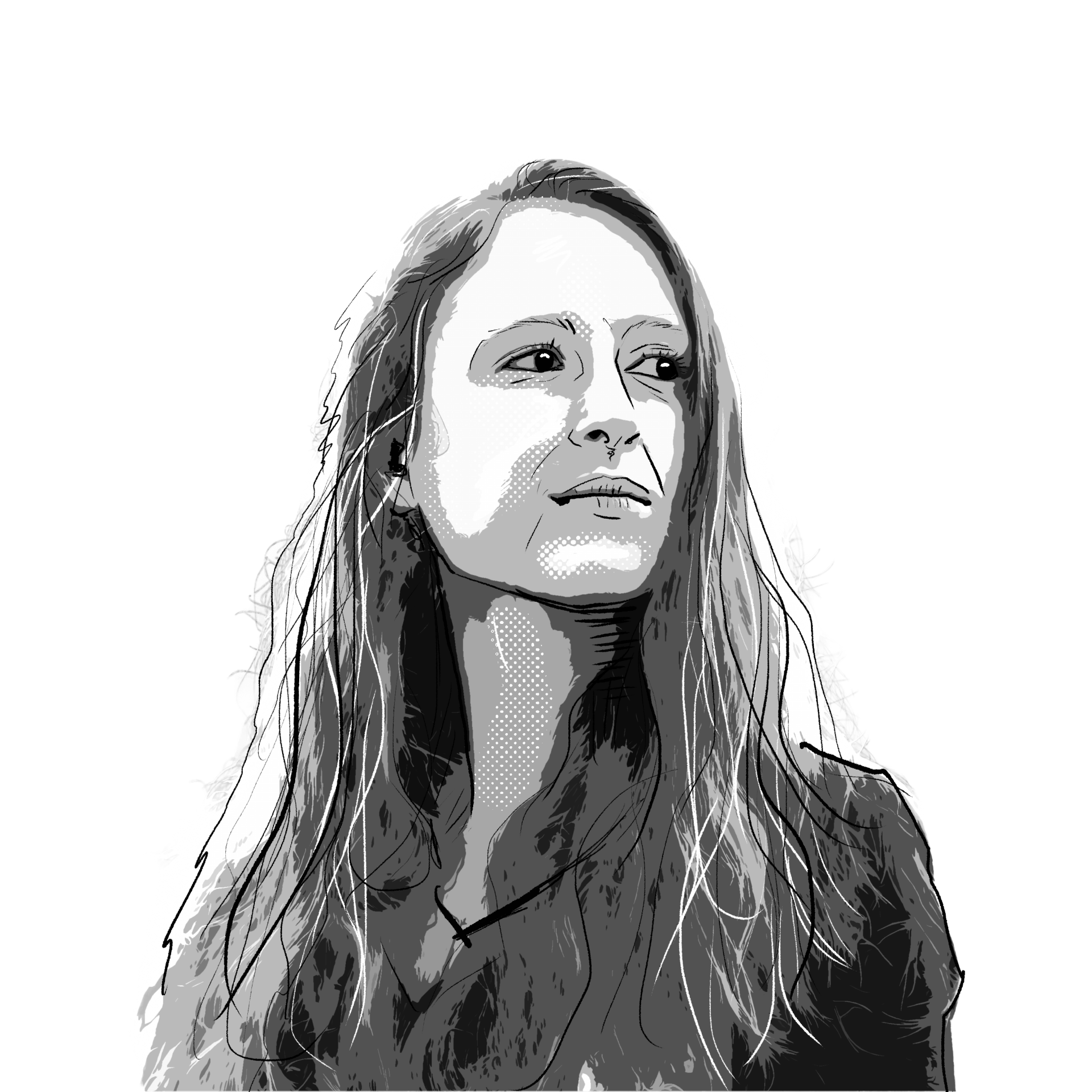
Bidzina Ivanishvili, Georgia’s French despot
It was linked with the start of the aggression against Ukraine, and the acceleration was also linked with the granting of EU candidate status to Georgia. So clearly, that displeased Moscow a lot, and they’ve used all the links they have, or the pressures on the people that are close to them, to take Georgia from this path. Hence the declaration last November, when the prime minister stopped the path towards negotiations [to enter the EU].
TNW: Trump’s re-election has precipitated a pretty dramatic shift in the US’s global priorities. He attacked the Euro-Atlantic relationship and blamed Zelensky for the conflict in Ukraine. Do you think pro-European Georgians can still count on the US as an ally in the age of Trump?
Zourabichvili: Pro-European Georgians can count on themselves, in general – let’s put it that way. And for the time being, there is no other policy of the US than the one that we’ve seen over the years, which was bipartisan support for an independent, democratic Georgia.
I don’t think the new American administration would be very attracted to a ruling party that is flirting with China, with Iran… that is in the process of bringing China to the shores of the Black Sea. So all of that is probably creating – if anybody has time to pay attention to Georgia, which I’m not so sure for the time being – it’s certainly creating some questions, at least.
Georgia, of course, cannot count anymore on the support it was getting from USAID, which was a very important support for many segments of the Georgian economy, and that is a problem for the Georgian population and for the Georgian ruling party too, because it was one important part of the economic development of this country, in agriculture, health, or education.
TNW: From the perspective of the UK, do you see Starmer as a potential leader in European security, and do you think he could occupy the space left by the US in terms of European security and the conflict in Ukraine?
Zourabichvili: I think it’s very important then in today’s challenges that Great Britain is present as one of the European leaders, especially in the security issues. But we are also a security issue. The Black Sea is a security issue. And it will be very important that this coalition of the willing that is offering new security guarantees to Ukraine, should also offer new political guarantees, or political framework, to a country like Georgia.
TNW: Do you see Russia as China’s subordinate?
Zourabichvili: I don’t see, in the long term, that there can ever be common interest between China and Russia. There can be tactical moments in which they play together, and that seems to be possible today. In the long term, they have different interests that would not allow a strategic type of coming together. And I don’t think that China needs anybody to have common strategic interest with them.
TNW: What is the future for the Georgian opposition?
Zourabichvili: I think that the path forward is more and more coordination. You cannot, how do you say, wipe away the differences between the existing parties. They are all with their own identities. And I think that the very strong call from the Georgian people is to have a coalition in future – no more one-party rule. We have had that – and we have had only bad experiences.

